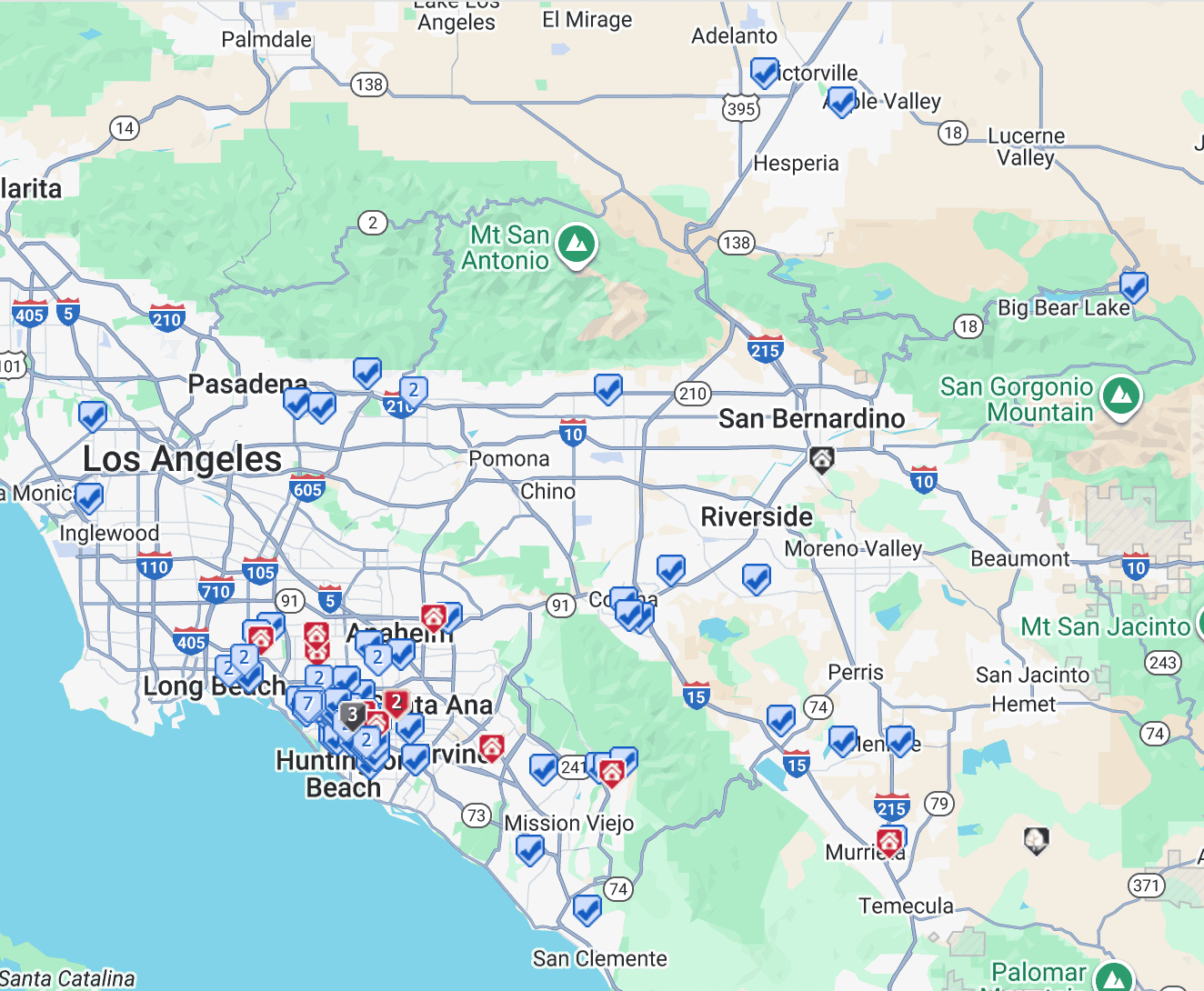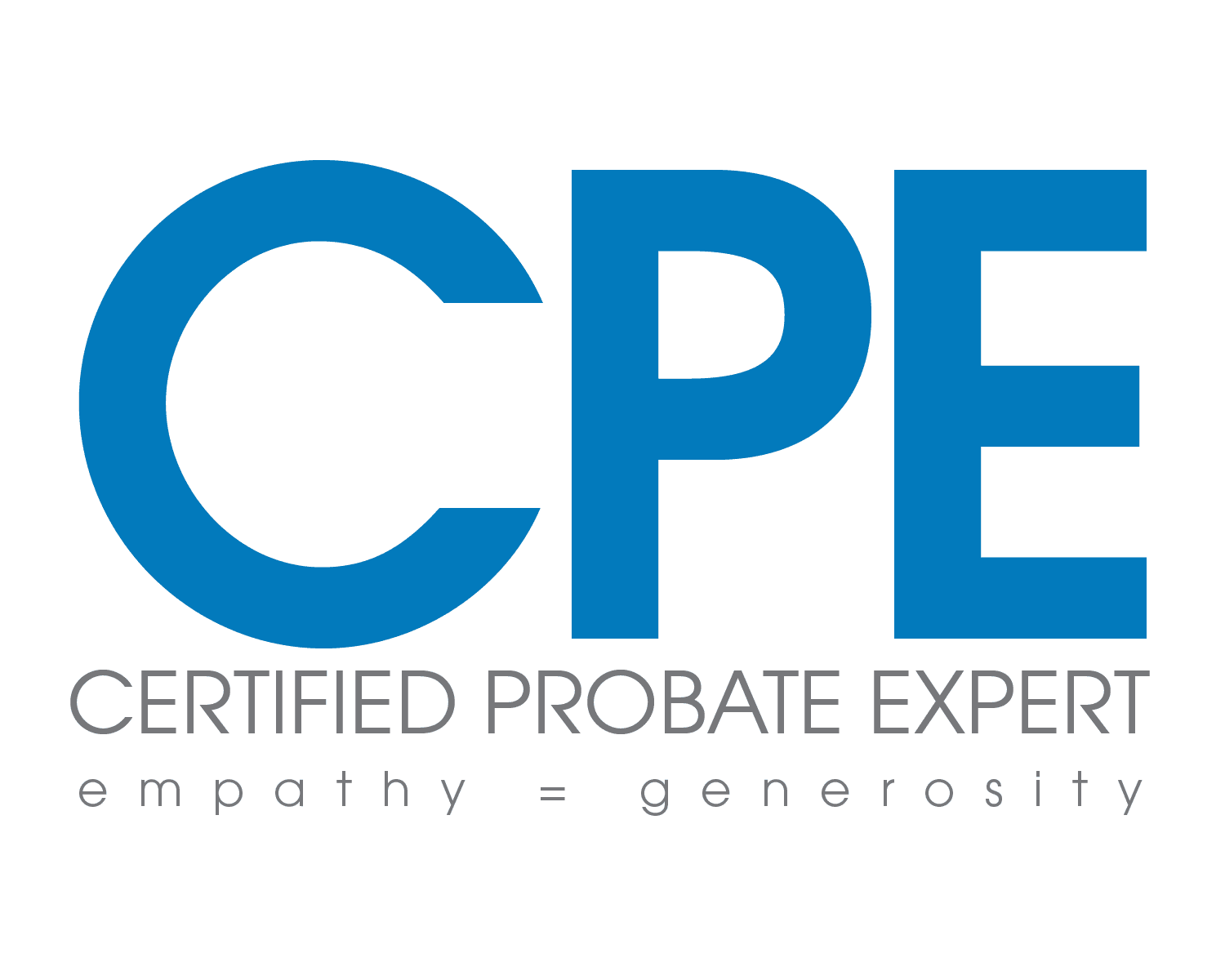California Probate FAQs

No matter where you are in California most of the Probate rules are applied the same. What changes will be the location of filing and, based on the value of the asset, the requirement to process the estate with full probate or an expedited probate.
What is Probate in California?
Probate in California is the court-supervised legal process of administering a deceased person's estate. It involves identifying and valuing assets, paying debts and taxes, and distributing the remaining estate to heirs based on a valid will or California's intestate succession laws. The process ensures compliance with California Probate Code.
How Do I Start the Probate Process in Orange County?
Starting probate involves filing a Petition for Probate (Form DE-111) at the Costa Mesa Justice Complex, along with Form DE-147, with a filing fee of around $435. Orange County mandates electronic filing, which can be a point of confusion, leading to frequent searches for guidance on initial steps and required documents.
How Do I Access Probate Records in Orange County?
Probate records can be accessed online via the Orange County Superior Court’s Online Case Access system using a case number or party name. In-person searches are available at the Costa Mesa Justice Complex or Central Justice Center, and copies may incur fees, reflecting the need for transparency.
Who Needs to be Notified During the Probate Processing Orange County?
All heirs, beneficiaries, and those named in the will (including nominated executors) must receive notice of the Petition for Probate. Notice must also be published three times in an approved Orange County newspaper, with the first publication at least 15 days before the hearing. If an heir’s address is unknown, reasonable efforts to locate them must be documented, making this a frequent search due to strict notification requirements
What Are Probate Notes, and How Do I Address Them in Orange County?
Probate notes are issued by court examiners to highlight deficiencies in a Petition for Probate, such as missing information or documents. These must be addressed by filing a Supplement to Petition before the hearing to avoid delays. Notes are available online 3-4 weeks before the hearing, a critical step in Orange County’s process.
How Can I Avoid Probate in California?
To avoid probate in California, create a living trust, designate beneficiaries on accounts, or hold property in joint tenancy. Gifting assets before death also helps. Consult a California estate planning attorney for tailored strategies. Do Trustees Need Probate?
What is a Certified Probate Specialist in California?
A Certified Probate Specialist in California is a professional with specialized training in the probate process, adhering to a strict code of ethics. They assist families in navigating California's complex probate system, offer guidance on estate settlement, and provide strategies to avoid probate through tools like living trusts. Their expertise is backed by a network of local probate professionals.
How Can Certified Probate Specialists Help with California Probate?
A Certified Probate Specialist in California provides local expertise, guiding you through the probate process, from filing petitions to resolving disputes. They connect you with trusted professionals, like probate attorneys or real estate agents, to ensure a smooth and efficient estate settlement. A full service Probate Specialst can assist you with a long list of services.
Where Does the Probate Process Occur in California?
In California, probate typically occurs in the Superior Court of the county where the decedent resided at the time of death. For example, if the decedent lived in Orange County, probate is filed in Orange County. If the decedent owned real property in multiple California counties or out-of-state assets, ancillary probate may be required.
Do I have to File Probate in California if There’s a Will?
Yes, in California, a will must be validated through probate unless specific exemptions apply. A common misconception is that a will avoids probate. Exemptions include estates with a gross value under $750,000 (as of April 2025, per Assembly Bill 2016 which is a Simplified Probate Procedure) or assets held in a living trust, joint tenancy, or with designated beneficiaries.
What Does it Mean to be a Personal Representative or Executor in California?
In California, a personal representative (termed executor if named in a will or administrator if appointed by the court) manages the estate under the California Probate Code. They have a fiduciary duty to act in the estate’s best interest, handling tasks like asset inventory, debt payment, and distribution according to the will or state law.
Are There Tax Implications of Probate in California?
Yes, California estates may face federal estate taxes if the estate exceeds the federal exemption limit ($13.61 million in 2025). California does not impose a state estate tax, but income generated by the estate may be subject to taxation. A California probate attorney or tax advisor can ensure compliance with tax obligations.
How Can I Find Out if I’m Named in a Will in California?
To check if you’re named in a California will, contact the Superior Court in the county where the decedent resided (e.g., Orange County Superior Court). Alternatively, reach out to the estate’s executor or a California probate attorney for assistance. Wills filed with the court are public records once probate begins.
Who Are the Heirs When There is No Will or Trust in California?
If there’s no will or trust, California’s intestate succession laws (Probate Code §6400-6414) determine heirs. Typically, the surviving spouse or domestic partner inherits community property, while separate property may go to children, parents, or other relatives. A California probate attorney can provide precise guidance based on family structure.
Can a Will be Contested in California?
Yes, a will can be contested in California on grounds like undue influence, fraud, or lack of capacity. Contesting a will requires filing a petition in the probate court. Consulting an experienced California probate litigation attorney is critical to assess the validity of your claim.
How Do I Start the Probate Process in California?
To initiate probate in California, obtain a certified death certificate from the county where the decedent passed (e.g., Orange County Vital Records). File a Petition for Probate (Form DE-111) with the Superior Court in the decedent’s county of residence. A California Certified Probate Expert can streamline this process.
What Documents and Information are Needed for Probate in California?
For California probate, you’ll need a certified death certificate, the original will (if applicable), and documents like property deeds, bank statements, tax returns, and a list of debts and creditors. An inventory of assets and potential heirs is also required. A probate attorney can ensure all paperwork complies with California law.
How Long Does Probate Take in California?
The California probate process typically takes 9 months to 2 years, depending on estate complexity. Simple estates may resolve in under a year, while disputes or large estates can extend beyond two years. A Certified Probate Expert in California can help expedite the process. Probate Timeline.
How Much Does Probate Cost in California?
Probate costs in California typically range from 4-7% of the estate’s gross value, covering court fees, attorney fees (set by Probate Code §10810), executor fees, and appraisal costs. For a $500,000 estate, costs might be $20,000-$35,000. Tracking expenses is key, as some can be reimbursed from the estate.
When Can I Get My Inheritance in California?
In California, inheritances are distributed after probate concludes, typically 9 months to 2 years after filing. All debts, taxes, and creditor claims must be settled first. In some cases, a California probate attorney can arrange an advance on inheritance with court approval.
What Are the Duties of an Executor During Probate in California?
A California executor manages the estate by collecting assets, paying debts and taxes, filing court documents, notifying creditors, and distributing assets per the will or intestate laws. They must adhere to fiduciary duties under California Probate Code, ensuring transparency and fairness.
What Happens to a House When There is No Will in California?
Without a will, a house in California enters probate and is distributed per intestate succession laws. It may pass to the surviving spouse, children, or other relatives, or be sold to settle debts. A Certified Probate Expert in California can guide you through options for inherited property.
Can I Sell an Inherited House Before Probate is Finished in California?
In California, selling an inherited house during probate requires court approval, typically via a Petition for Confirmation of Sale. Alternatives like accessing equity without selling may be available. Consult a California probate attorney to explore options under Probate Code §10000. Probate Timeline.
Do I Have to be Present in California to Serve as Executor?
No, an executor can manage a California estate remotely, though some tasks may require local coordination. A California Certified Probate Specialst can act as your “boots on the ground,” handling local filings and property matters on your behalf.
How Should I Prepare for a Meeting With a California Probate Attorney?
Gather key documents like the death certificate, will, trust documents, property deeds, bank statements, and a list of debts and heirs. Prepare questions about the California probate process to maximize your consultation. A Certified Probate Specialist can help organize these materials.
What Happens to Assets Like Real Estate and Vehicles During Probate in California?
In California, probate assets like real estate or vehicles are inventoried and may be sold to pay debts or distributed to heirs per the will or intestate laws. Some assets, like those in a trust or joint tenancy, may bypass probate. A probate attorney can clarify asset handling.
What is Probate Litigation in California?
Probate litigation in California involves disputes over a will’s validity, executor actions, or asset distribution. Common issues include fraud or undue influence claims. An experienced California probate litigation attorney can represent you in Superior Court to resolve conflicts.
What If My Family Member Was a Medicaid Recipient in California?
If the decedent received Medi-Cal (California’s Medicaid program), the estate may be subject to Medi-Cal estate recovery under California Welfare and Institutions Code §14009.5. The state may seek reimbursement for benefits paid, typically from the estate’s assets.







